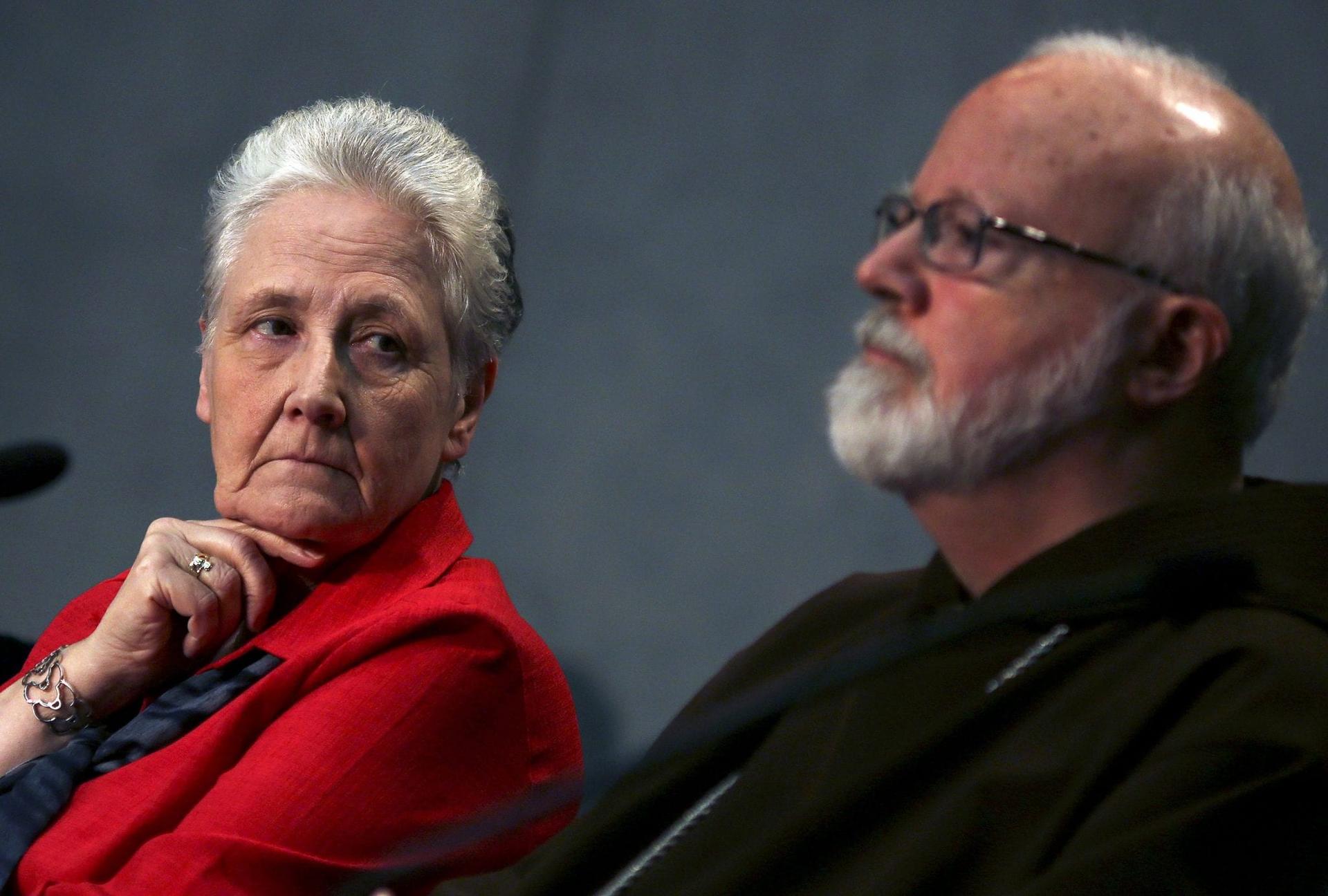ROME—Irish laywoman Marie Collins, the lone clerical sex abuse survivor currently serving as an active member of Pope Francis’s Pontifical Commission for the Protection of Minors, is stepping down because she says the group’s work is being “hindered and blocked by members of the Curia.”
“The reason for me leaving the Commission is completely down to the fact that the work we’re trying to do is being hindered and blocked by members of the curia,” Collins told Crux in a phone interview. “The commission itself has been really working really hard and trying to put forth the mission given to us by the Holy Father.”
RELATED: Pope says suicides by clerical abuse victims ‘weigh on my heart’
Her decision to step down was announced by the commission through a statement on Wednesday. Collins has agreed, however, to continue working with the Church to deliver anti-abuse training to clergy, including newly ordained bishops.
The commission’s statement praised Collins as someone who had “consistently and tirelessly championed for the voices of the victims/survivors to be heard, and for the healing of victims/survivors to be a priority of the Church.
“The Holy Father accepted Mrs. Collins resignation with deep appreciation for her work on behalf of the victims/survivors of clergy abuse,” it said.
The commission was instituted on March 2014, with plans for it first revealed in Dec. 2013. The body is headed by Boston’s Cardinal Sean P. O’Malley. Collins was part of the original group of nine members.
The Irish woman was one of two clerical sexual abuse survivors who sat on the Vatican commission. The second is Peter Saunders from the UK, who was asked to take “a leave of absence” by the other members, but is technically still a part of the group.
RELATED: Victim critical of pope on abuse asked to leave Vatican commission
Francis, Collins told Crux, accepted all of the panel’s recommendations, but when they went for implementation, some members of the Church’s governing body, known as the Roman Curia, have hindered their implementation.
She refused to offer names or to cite specific situations. However, in recent weeks several other members have spoken about the challenges the commission faces, including the fact that it’s under-budgeted for the scope of the task that has been given to it, and that it’s experiencing difficulties due to the infrequent meetings and cultural barriers both in the Church and across nations.
Testifying before an Australian Royal Commission examining institutional responses to child sexual abuse, papal commission member Kathleen McCormack said that despite being an advisory body to the pope, they have a budget more appropriate for a diocese.
Another known example is a new Vatican tribunal to handle cases of bishops accused of failing to act appropriately on abuse allegations. Such a tribunal was suggested by the commission and announced in 2015 and was supposed to be set up within the Congregation for the Doctrine of the Faith.
In reality, the creation of the tribunal has been scrapped following legal objections from the congregation.
RELATED: Pope quietly trims sanctions for sex abusers seeking mercy
Another source of frustration is that a template for guidelines for dioceses on the prevention, detection and response to abuse has never been sent by the Vatican to dioceses around the world, as the commission had requested.
“I simply have tried to work in the commission, and this resistance in areas of the curia is something I can’t continue working with, particularly as a survivor,” she said. “I can’t continue and it does not mean that the work won’t be continuing and I wish it goes well. I want to see what the Holy Father wanted to see in putting the commission in place, and that’s improvement in practices and policies.”
RELATED: Pope kicks off new year renewing ‘zero tolerance’ policy on abuse
Collins also said that she’s “totally disgusted” by the opposition the commission finds within the Curia, and with the fact that men working at this level within the Church would resist the work they’re doing, which she said is for the protection of children and minors and for the care of survivors.
After two years volunteering her work and experience to the commission, Collins believes that the disruption coming from certain areas of the Curia has more to do with Vatican politics than the actual issue of child protection, which, according to her, “makes it even worse.”
“It means that this horrible abuse of children and minors is being used, when children are still being harmed around the world,” she said. “It’s just difficult.”
Resisting change and improvement in this area, she said, is “sad and strikingly against what has been put to me about the Church’s intentions to make the necessary changes.”
Reinforcing the idea that her complaint is not with the pope, the commission or O’Malley, at the cardinal’s request Collins has agreed to continue forming and training priests as well as newly ordained bishops, who once a year gather in Rome for what is often dubbed “baby-bishops school.”
RELATED: ‘Baby bishops’ get a crash course in the realities of the Church
“I don’t blame the Holy Father in any way,” she insisted, “and certainly don’t blame the commission, but I think that there’s politics involved and that’s what makes it even more unacceptable.”
In a separate statement, O’Malley wished Collins well.
“We will certainly listen carefully to all that Marie wishes to share with us about her concerns and we will greatly miss her important contributions as a member of the Commission,” he said.
“With the members of the Commission I am deeply grateful for Marie’s willingness to continue to work with us in the education of church leaders, including the upcoming programs for new bishops and for the dicasteries of the Holy See.”















